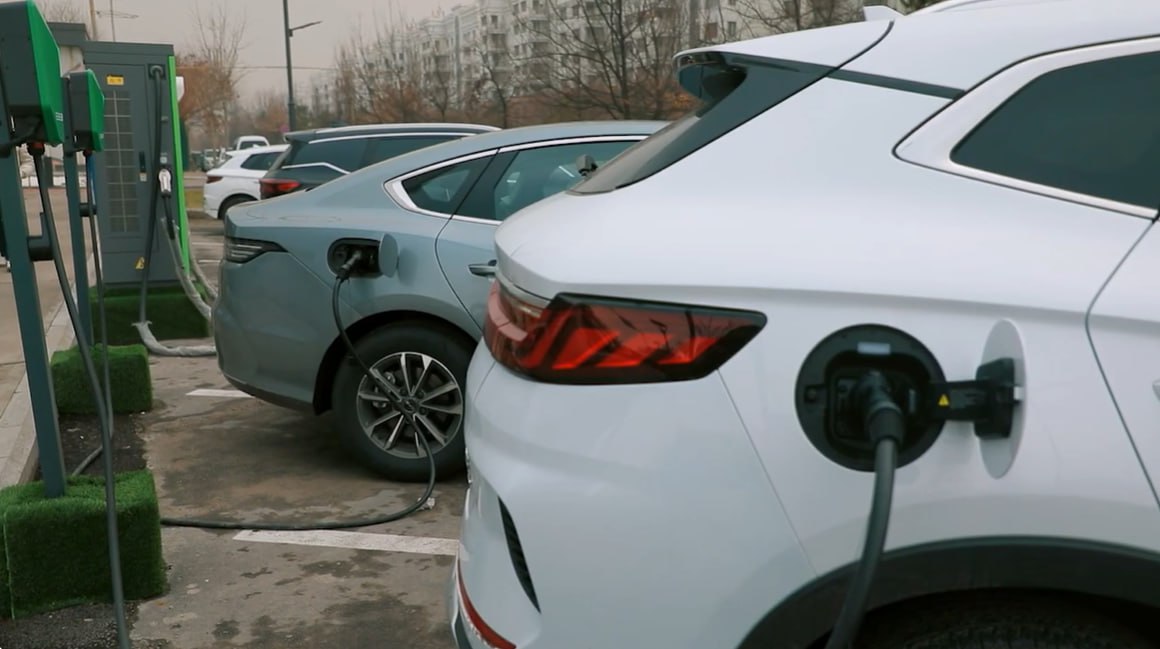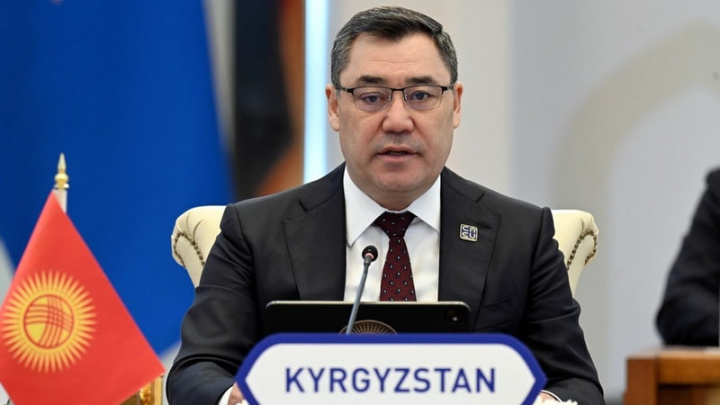Deputy Minister of Energy comments on disconnection of EV charging stations
Stations that complied with regulations have been reconnected to the grid, and as of now, no charging stations in Tashkent remain disconnected, according to Umid Mamadaminov. Plans are underway to introduce specific tariffs for charging electric vehicles at home, with higher tariffs during certain hours and discounts at night.

A draft resolution is being developed in Uzbekistan to introduce separate tariffs for charging electric vehicles in residential homes, the Ministry of Energy announced today, January 2.
It is reported that during peak hours—6:00 AM to 10:00 AM and 5:00 PM to 10:00 PM—charging electric vehicles will be subject to relatively higher tariffs, while nighttime tariffs will be reduced by up to 50%.
The specific increase percentage for peak-hour tariffs has not been disclosed.
In a video released by the Ministry of Energy today, Deputy Minister Umid Mamadaminov explained the recent disconnection of electric vehicle charging stations from the grid.
According to him, during an inspection conducted by relevant authorities in mid-December, the compliance of sub-consumers with established regulations was reviewed.
"Based on the findings of the review, several stations were disconnected on the same day. Following the intervention of the Ministry of Energy, stations without operational deficiencies were reconnected to the grid. However, for 11 stations with technical or other issues, a period was provided, in accordance with the law, to resolve documentation-related matters. As of now, they have also been reconnected, and currently, there are no disconnected charging stations in Tashkent," Mamadaminov stated.
The deputy minister emphasized that all business entities that connect electric vehicle charging stations to their facilities as sub-consumers must contact regional electricity network branches to revise their technical specifications and allocate new capacities.
It was noted that while there are more than 500 operational charging stations in Tashkent, only 103 of them meet technical requirements. By November 1, 2024, 5,417 charging stations are expected to be imported into Uzbekistan, and "technical specifications for the same number of stations must be obtained within this year."
"In such cases, increased loads in the regions, voltage drops, and disruptions in electricity supply to other consumers are inevitable," the deputy minister added.
Kun.uz reported on December 17 that electric vehicle charging stations in Tashkent had been disconnected en masse. According to business owners, lower-level officials explained the situation by saying, "It was an order from above."
Following this, the Ministry of Energy clarified that it had not issued any instructions to disconnect charging stations from the grid. "Regional Electric Networks" claimed that only consumers with outstanding debts were being disconnected.
However, a few days later, business owners who were reconnected denied the claim from "Regional Electric Networks," stating that they had no outstanding electricity debts. They also explained that they were sub-consumers using electricity based on contracts with entities such as shopping malls or hotels that own transformers, rather than directly with the regional networks. Officials, however, disconnected only the stations without targeting the primary consumer.
Additionally, it was revealed that the Cadastre Agency demanded the dismantling of stations based on several regulatory documents, threatening to open cases for illegal land use if the demands were not met. According to business owners, when they asked how to resolve the situation legally, they were told that dismantling the stations was their only option.
Related News

14:03 / 05.04.2025
EU commits to long-term cooperation with Central Asia on transport, energy, and innovation

13:03 / 05.04.2025
Electricity grid worker and accomplice arrested for large-scale power theft

16:12 / 04.04.2025
Sadyr Japarov urges EU investment in Kyrgyz hydropower, rare metals

13:37 / 04.04.2025



